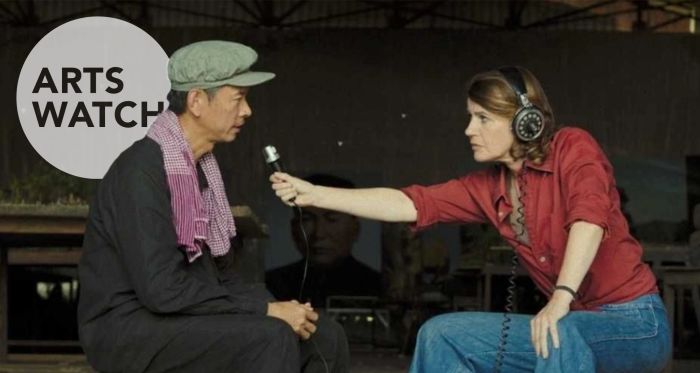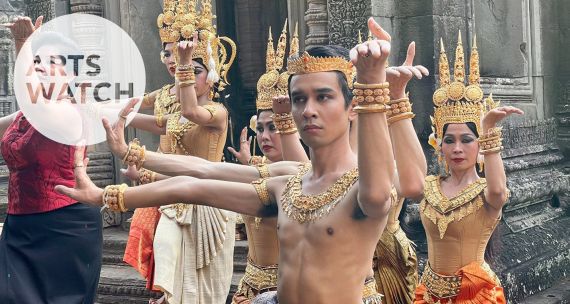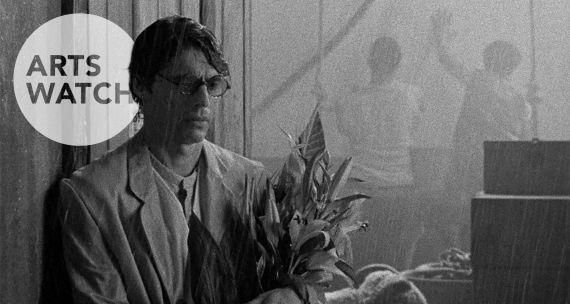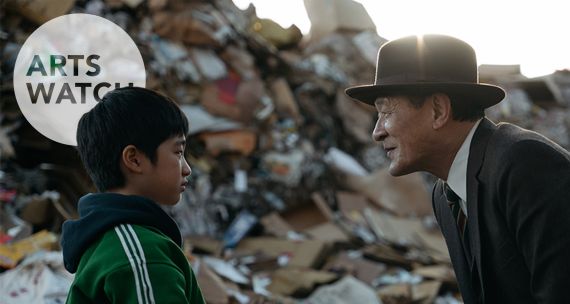With Meeting with Pol Pot, director Rithy Panh marks another milestone in his work to commemorate the Cambodian genocide of 1975–79. Still a child when the Khmer Rouge regime took power, Panh has devoted part of his career to remembering the genocide that claimed the lives of a quarter of Cambodia's population. Representing Cambodia at the Oscars and selected for the Cannes Film Festival, Meeting with Pol Pot was shown at Montreal's Festival CINEMANIA for its North American premiere.
The film, which is based on journalist Elizabeth Becker's 1986 memoir, When the War Was Over, tells the story of three journalists, Lise Delbo, Paul Thomas, and the Marxist Alain Cariou, a close associate of the Khmer Rouge regime, who were invited to Cambodia in 1978 to interview Pol Pot and document the impact of the communist revolution. They soon realized, however, that the propaganda to which they had been exposed bore little resemblance to what the Cambodian people were experiencing. The story follows the journey of three journalists who, closely monitored during their visit by armed guards, try to escape the control exercised by the dictatorial regime. While searching for the truth, they showed that the illusion of a utopia had in fact gone seriously wrong.
Art at the heart of memory
Panh uses a variety of cinematographic techniques to reflect on the Cambodian genocide. Situating the film halfway between fiction and reality, he juggles the journalists' guided tour, fuelled by Pol Pot's propaganda, with black-and-white archives of the real situation in Democratic Kampuchea. When Paul Thomas manages to escape his armed escort, Panh juxtaposes what the photojournalist has discovered with archival footage of forced labour, torture, and starvation in the camps.
Miniature clay figures are also used to show what had not been documented about Pol Pot’s genocide. This emphasizes the contrast between the Cambodian people’s situation and the propaganda of a utopian communist vision. While two of the journalists, Delbo and Thomas, try to discover what lies behind the official propaganda, Cariou — a close friend of the regime who shares its communist ideals — attempts to minimize the incidents surrounding their visit.
Disinformation and journalistic integrity: A message that resonates strongly today
Beyond the work of memory, this film bears witness to the importance of journalism. After escaping from custody and uncovering the secrets of the Khmer Rouge regime, Paul Thomas mysteriously disappears, never to be seen again. The film is a reminder of the media’s role as a counterweight to the fabricated narratives of authoritarian rulers, and of the risks inherent in journalistic work.
In an age when information has never been so accessible, misinformation continues to be increasingly prevalent. In 2023, 43 per cent of Canadians thought it was more difficult to distinguish between real and fake news than in the previous three years. Here in Canada, Foreign Minister Mélanie Joly recently expressed during the Commission on Foreign Interference that Canada was not sufficiently equipped to counter major disinformation campaigns. While one 2024 report by the federal government lists misinformation as one of the biggest problems facing the world, the film's message is as relevant as ever. Although disinformation techniques have changed, the risks they entail are just as present.one of the biggest problems facing the world, the film's message is as relevant as ever. Although disinformation techniques have changed, the risks they entail are just as present.
***
Montreal's CINEMANIA French Film Festival is a non-profit organization considered the largest event devoted to French-language cinema in North America. Since 1995, it has presented nearly 100 films from major international festivals, contributing to the cultural influence of Quebec and the French-speaking world.





